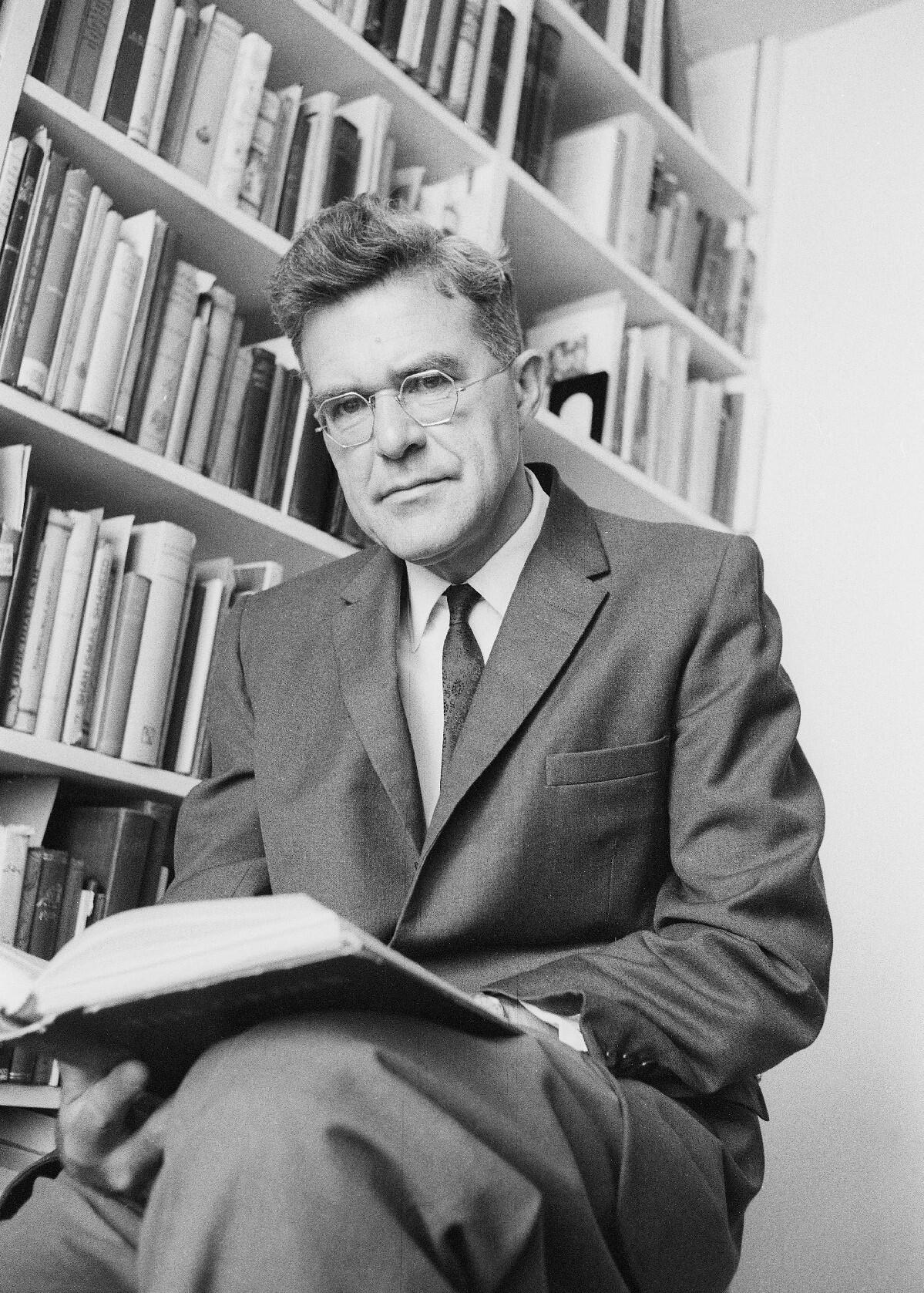Wilfred Cantwell Smith teaches global, comparative religious and Islamic studies
Area studies to Islamic studies 1964
Wilfred Cantwell Smith Teaches Global, Comparative Religious and Islamic Studies
Wilfred Smith was born in 1916 in Toronto, Canada. After he studied Oriental Languages at the University of Toronto and pursued graduate studies in Cambridge, England, Professor Smith and his wife, Muriel, spent five years with the Canadian Overseas Mission Council in Lahore, India where he taught Islamic and Indian history. When his dissertation at Cambridge was rejected due to its critique of the British Raj, Professor Smith pursued another doctoral program at Princeton, which he completed in 1948. Professor Smith was then appointed the first Birks Professor of Comparative Religion at McGill and became the founding director of McGill’s Institute of Islamic Studies in 1951. In 1964, he joined Harvard Divinity School where he and Muriel developed the Center for the Study of World Religions and he became a leading force in comparative religious studies and the wider Study of Religion doctoral program. Among his publications are Modern Islam in India: A Social Analysis (1946), Islam in Modern History (1957), and The Meaning and End of Religion (1962). His colleagues remember him for his critiques of Orientalism and area studies, as “one of the last puritans,” and for his commitment to taking people of all faiths and cultures equally seriously. Among his notable students is Professor Emeritus William A. Graham.
Transcript
Wilfred Cantwell Smith and Global Islamic Studies
William Graham
I think Wilfred Smith represented certainly in the American scene, he and Marshall Hodgson, I would say, are probably the two figures that represent, for me at least, the the movement into an Islamic studies that is international and across time and space, and it's global, in the sense of being, anywhere Islam went around the world being a part of the study of Islam, and both he and Wilfred were passionate about that. And then also that, of course, you don't just do the classical period of Islam and maybe up to the 12th or 13th century, but you really have to be interested in the full range. I mean, I myself have always been interested in the earlier half of Islam, I have to say that, and most of my work has been with classical texts and sources, but certainly, if you worked with Wilfred, and I'm sure that was true of Hodgson as well, I mean, I know from some of his students and so on about that, that you had to do the length and breadth. And I think that kind of approach to Islamic studies, being one, international and also, then, 14-centuries long, not three centuries or five centuries long, I think that was something that really did begin to develop with people like Smith and like Hodgson, in the, well, Smith already in the '50s was doing a lot of this and Hodgson too, so it really began postwar, over against area studies. I would say in both cases, I wouldn't describe either of them as an area studies person. Smith almost felt that area studies was, in fact, kind of a step backwards in a lot of ways because I think he felt that it was isolating, rather than, you know, invigorating. I remember he always started his lectures, his course on Islamic civilization, he always started it, inside of religion, he always started by saying, "Islam began among the Arabs and non-Arabs made it great," and that was his sort of take on it because of course, he had an extensive background in the Indo-Muslim world, and many years spent there and knew Urdu very well and Persian.

